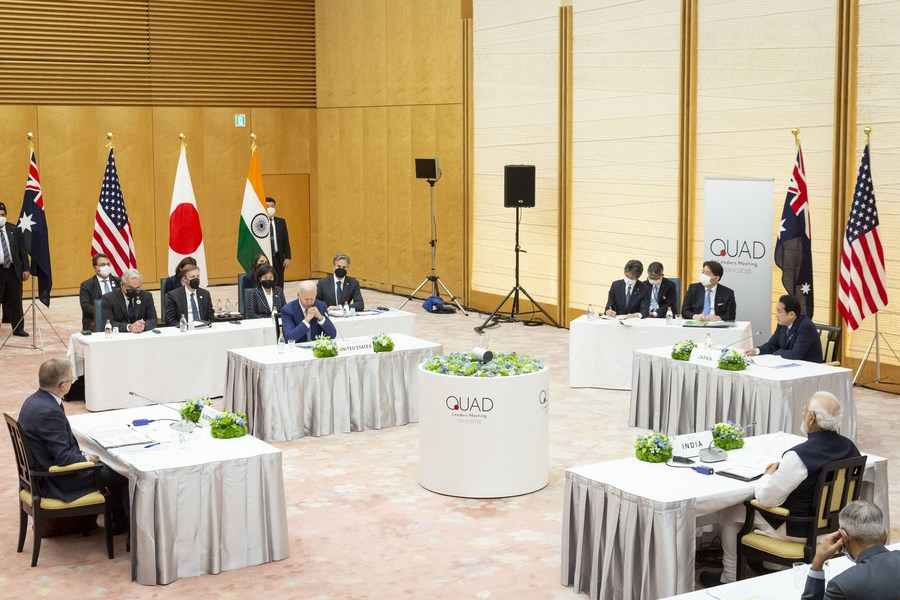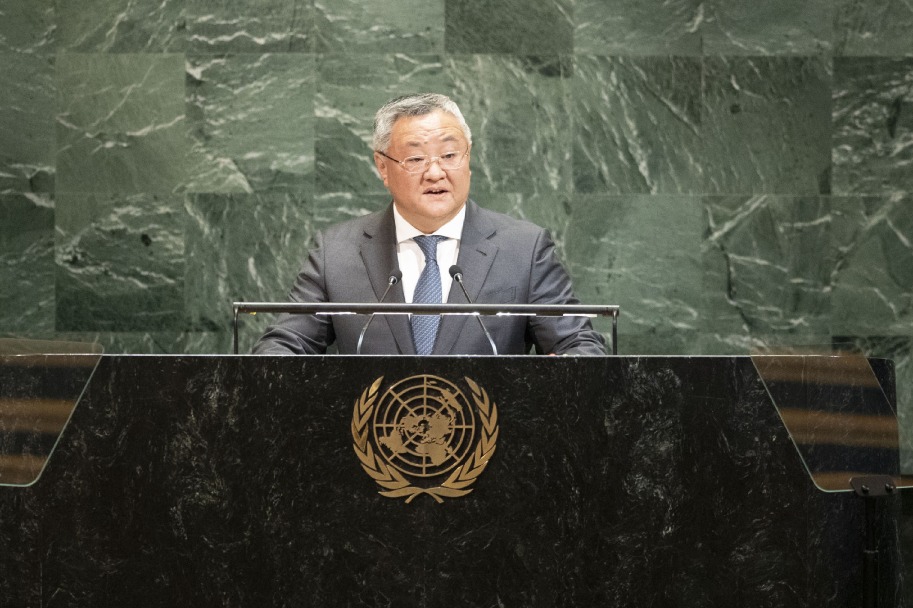'Indo-Pacific', Quad groupings risk fomenting divisions


The Indo-Pacific Economic Framework and the recent statement by leaders of the Quadrilateral Security Dialogue, or Quad, risk fomenting divisions rather than promoting cooperation, and so pose threats to regional economic integration and world economic recovery, according to government officials and experts on Wednesday.
Their comments came after the launch of the US-led IPEF in Japan on Monday-an initiative that a number of countries, including Japan, India and Australia, have joined in.
Quad leaders, from the United States, India, Japan and Australia, said in a joint statement on Tuesday that they will deepen cooperation in critical and emerging technologies including 5G, semiconductors, biotechnology and quantum technologies.
"People will see clearly that the IPEF is designed to disrupt regional cooperation and is a tool for the US to coerce economies in the region," said Wang Wenbin, a Ministry of Foreign Affairs spokesman, at a regular media briefing on Wednesday in Beijing.
"The IPEF, although it includes quite a few countries and regions, doesn't care for the development levels or actual needs of economies in the region. It has no arrangements for tariff cuts or market access, but rather, forces others to accept the so-called high standards from the US," he said.
Experts said that only open regionalism together with mutually beneficial economic and trade collaboration will truly optimize resource allocation, facilitate innovation and protect the development rights and interests of small enterprises and economies, to create more impetus for regional growth.
Though the Quad leaders' statement did not specifically mention China, its push to boost technological ties among those countries is believed to be aimed at downsizing China's presence in crucial global industry chains.
The IPEF also seeks to diminish China.
"The initiative aims to contain China's regional influence, but will fail because it falls into the old paradigm of serving US interests and neglects the power of win-win cooperation," said Huo Jianguo, vice-chairman of the Beijing-based China Society for World Trade Organization Studies.
Inclusive collaboration for win-win outcomes, as China always advocates, is the key to lifting regional trade, investment and economic growth to new levels, Huo said.
China's deep friendship with all the members of the Association of Southeast Asian Nations and other economies, together with the attractiveness of its huge domestic market and the increasing openness of the Chinese economy, will help it promote mutually beneficial cooperation in the region despite opposing forces, he added.































